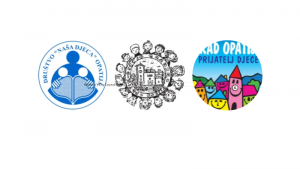cpip
What did you find out?
We have organized lots of projects and actions for and with children during the first 20 years of our persistent and active work. Around 300 children from Opatija have been part of our Children’s City Council Opatija, and we have had 12 children’s mayors (6 girls and 6 boys). Now our 12th convocation is active.
We are planning to have a big celebration of our 20 years of active work and dedication to promoting children’s participation and children’s rights.
What do you recommend?
- Members of the European Parliament should more actively include children and young people in the decision-making process so that children can freely and openly voice their opinions and suggest ideas. This also applies to governments in countries that wish to become members of the EU.
- National governments should review the balance of participation and protection in their domestic legislation affecting children and young people in care, so that children and young people have greater independence in decision-making in their own lives, including with regard to the use of social media.
- Young people should be involved in expert meetings as they are experts by experience and should be given the opportunity to co-lead projects, also working together with those least likely to have their voices heard.
- Child budgeting
The European Commission should call on Member States to monitor how much money they are spending on children (directly and indirectly) and to report on, evaluate and audit their budgets. Governments at all levels across Europe must ensure that the allocated budget for children and young people is increased and spent effectively. - The European Commission should ensure that children and young people are provided with ways to actively monitor and meaningfully participate and interact in budget processes at the local, regional, national and EU level. Information about budgets and explanations on how money is spent should be easily accessible and understandable.
-
cpip

What do you suggest other people try out?
Children's City Council of Opatija has its own budget of 12,000 kuna's (1,600 euro's), and each year our Children's City Council Opatija decides which project, which will gather a large number of children to include, should win the competition. Also, our councillors give suggestions to the big budget of the City of Opatija, have their own statute, and the mayor or his deputy need's to be present on our sessions (4 times a year).What advice wold you give?
- Connecting with children's associations that promote active child participation at a global level
- Partnership on the implementation of global projects with children and for children
- The possibility of actively contributing to the development of an inclusive society
- Education related to the improvement of various forms of learning to help children's activities through activities prepared for the challenges of the 21st century
- Empowerment for democratic participation in all domains of society (local, national, European, global)
- Contribute to building a society in which all children will be actively involved, educated and capable Contribute to protecting the environment in everyday life
- Exchange of experience and practice.
-
cpip

What do you try to change?
We hope to have more children included, and to have children's voice heard in all of communities, on local, national and European levels.What do you want other people to do to help?
- Involve children and young people in delivering training to professionals and other children, so that they tell children about their rights. This will empower adults and children to act against discrimination and be world citizens. This is especially important for children living in poverty, children in care, children affected by migration and those in other vulnerable situations. A Children’s Rights passport for every child should be produced in each country to give a more specific and easy formulated guide to laws, rights and policies.
- Schools and local services should work to prevent stigmatization of children, young people and families living in poverty. Talk to children living in poverty as equals. Poverty-proof schools.

